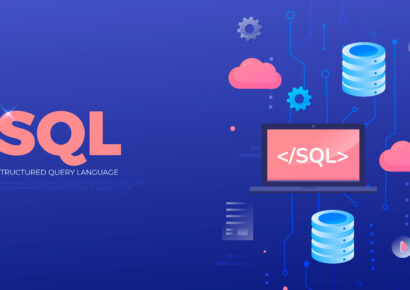Course Overview
Python has become one of the most popular programming languages for automation testing due to its simplicity, flexibility, and vast library support. Techxeeria Technologies Pvt. Ltd. offers a 3-month comprehensive Python Automation Testing course, designed to transform beginners and IT professionals into job-ready automation testers.
This course covers Python programming, Selenium WebDriver, Automation Frameworks, API Testing, BDD with Cucumber, CI/CD integration, and real-time projects, providing practical skills to work in modern software testing environments.
Why Choose Python Automation Testing Course?
- Learn Python programming from scratch specifically for automation.
- Gain expertise in Selenium WebDriver, Pytest, Robot Framework, and BDD with Python.
- Hands-on experience with API testing using Python libraries.
- Exposure to CI/CD tools like Jenkins and GitHub integration for automation pipelines.
- Real-time projects prepare you for industry scenarios and interviews.
3-Month Course Syllabus
Month 1 – Python Fundamentals & Automation Basics
Week 1 – Python Basics
- Day 1: Introduction to Python, Installation, IDE Setup
- Day 2: Variables, Data Types, Operators
- Day 3: Control Structures – If-Else, Loops (for, while)
- Day 4: Functions & Modules
- Day 5: Exception Handling in Python
- Day 6: File Handling – Reading/Writing Files
- Day 7: Hands-on Practice – Python Exercises
Week 2 – Advanced Python Concepts
- Day 8: Object-Oriented Programming – Class, Object, Inheritance, Polymorphism
- Day 9: Encapsulation, Abstraction, Interfaces in Python
- Day 10: Python Collections – Lists, Sets, Dictionaries, Tuples
- Day 11: Python Libraries for Automation – Selenium, Requests, Pandas
- Day 12: Logging & Debugging
- Day 13: Working with JSON & CSV for Test Data
- Day 14: Mini Project – Data Handling & Automation Script
Week 3 – Introduction to Selenium with Python
- Day 15: Selenium WebDriver Overview & Installation
- Day 16: Locators – ID, Name, XPath, CSS Selectors
- Day 17: WebDriver Commands – get(), navigate(), manage()
- Day 18: Handling WebElements – Click, SendKeys, Dropdowns, Checkboxes
- Day 19: Alerts, Frames & Windows Handling
- Day 20: Waits in Selenium – Implicit, Explicit, Fluent Wait
- Day 21: Mini Project – Automate Login Page
Week 4 – Automation Project & Reporting
- Day 22: Handling Tables & Dynamic Web Elements
- Day 23: Taking Screenshots & Logging with Python
- Day 24: TestNG Equivalent – Pytest Setup & Assertions
- Day 25: Creating Test Suites & Test Cases
- Day 26: Reporting – Allure Reports / HTML Reports
- Day 27: Mini Project – E-Commerce Automation
- Day 28: Review & Practice
Month 2 – Advanced Selenium & Frameworks
Week 5 – Framework Concepts
- Day 29: Introduction to Automation Frameworks
- Day 30: Data-Driven Framework with Excel (openpyxl)
- Day 31: Page Object Model (POM) with Python
- Day 32: Hybrid Framework Concepts
- Day 33: Utility Classes & Reusable Methods
- Day 34: Locators & Config File Handling
- Day 35: Hands-on Project – Build Small Framework
Week 6 – BDD & API Automation
- Day 36: Introduction to BDD & Gherkin Syntax
- Day 37: Cucumber with Python – Feature Files & Step Definitions
- Day 38: API Testing with Python Requests Library
- Day 39: Validating API Responses & JSON Parsing
- Day 40: Integrating API Automation with Pytest
- Day 41: Mini Project – API Automation
- Day 42: Review & Practice
Week 7 – CI/CD & Cloud Automation
- Day 43: Git & GitHub Integration
- Day 44: Jenkins for Automation – Installation & Setup
- Day 45: Running Selenium & API Tests via Jenkins
- Day 46: Scheduling Jobs & Notifications
- Day 47: Cloud-Based Testing Tools – BrowserStack, LambdaTest
- Day 48: Parallel Execution & Cross-Browser Testing
- Day 49: Mini Project – CI/CD Pipeline Setup
Week 8 – Real-Time Automation Project
- Day 50: Requirement Analysis & Test Case Design
- Day 51: End-to-End Automation Script Development
- Day 52: Framework Enhancement & Optimization
- Day 53: Reporting & Logs Management
- Day 54: Debugging & Issue Fixing
- Day 55: Final Project – Web & API Automation Integration
- Day 56: Review & Practice
Month 3 – Real-Time Projects & Interview Preparation
Week 9 – Full Project Execution
- Day 57–59: Execute Complete Automation Project (Web + API + BDD + Reporting)
- Day 60–61: Peer Review & Code Optimization
Week 10 – Advanced Concepts & Performance Testing
- Day 62: Introduction to Load Testing with Python (Locust)
- Day 63: Data-Driven Performance Scripts
- Day 64: Integrating Performance Scripts in CI/CD
Week 11 – Interview Preparation
- Day 65: Common Python & Selenium Interview Questions
- Day 66: API Testing Interview Questions
- Day 67: BDD & Framework Questions
- Day 68: Mock Interview 1
- Day 69: Mock Interview 2
Week 12 – Final Assessment & Placement Guidance
- Day 70: Project Presentation & Trainer Feedback
- Day 71: Resume Building for Automation Tester Role
- Day 72: Placement Assistance & Guidance
Key Benefits of Python Automation Testing Course
- Python programming for automation from basics to advanced level.
- Hands-on Selenium WebDriver, API testing, BDD frameworks, and CI/CD pipelines.
- Real-time projects simulate industry scenarios.
- Placement support with resume building, mock interviews, and job guidance.
- Learn cross-browser, parallel, and cloud-based testing for career readiness.
Career Opportunities After This Course
- Python Automation Tester
- Selenium WebDriver Engineer
- QA Automation Engineer
- SDET (Software Development Engineer in Test)
- API Automation Tester



